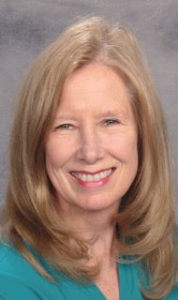Authored by Robin S. Shultz, D.S.W., L.C.S.W., L.M.F.T., Licensed School Social Worker
As a school social worker, learning about Bowen Family Systems Theory was an eye-opener for me. Having worked with struggling kids for nearly twenty years, I couldn’t help but marvel at how resilient these kids can be even when having some pretty traumatic histories. I would like to say that it is these children who have kept me in the field for such a long time. In reality, it’s the student not burdened by trauma who has a natural capability to function well in school, but for some reason doesn’t, that has captured and held my attention over the years.
The students I am referring to are those who are able to function well enough at school, but in some way stand out just enough to gain the attention of a well-meaning adult who wants to help. At times, these adults are teachers, interventionists, administrators, and yes, school social workers and psychologists. At other times, they are parents. In the spirit of assisting children to be their best, we team together, sometimes with outside mental health providers, to support and maximize student success. As special educators, this is our job and we do it well. But on occasion, I couldn’t help noticing that for some of the students we tried to help, especially those who had been getting along “well enough”, our “help” resulted in decreased functioning in the area we were trying to improve. Dang. That wasn’t what we were hoping for. What happened?
It was this question that led me to embrace Bowen Family Systems Theory so emphatically when I happened upon it. As a school social worker and a family therapist in private practice, I’ve been interested since my own coming of age in better understanding how families shape the individual functioning of it’s members, particularly children. Having been a child myself once (weren’t we all?), I have an affinity towards a deeper understanding of not only adults’ experiences with their children, but most importantly, children’s experiences with the significant adults in their lives. It was not until I began my doctoral studies in clinical social work that I realized that this phenomenon was not just a figment of my own curiosity. It was a “Thing”.
Bowen Family Systems Theory’s child-focus process confirmed what I had observed over the years in my work with children in the public school system as well as with families in my private practice work. I finally had a clinical framework from which to work when trying to help parents and teachers understand how over-helping a child can impact both his/her self-perception and general anxiety level. Finding the balance between under, over, and just enough helping is, of course, the ongoing challenge.
Bowen Family Systems Theory, provides valuable clinical insight into working with under-functioning children and their families, and offers a plethora of opportunities for family engagement in the school setting. Other constructs such as:
- The way in which needs for both individuality and togetherness impact relationships between parents and their children
- The manner in which parents address their own and their child’s needs for attachment to each other
- The importance of maintaining meaningful relationships with extended family while developing a strong sense of personal independence
All are timely topics for school mental health personnel today. As neuroscience, biology, and research produce new information about how children thrive, there is no time like the present for the implementation of fresh approaches to parent educational programming in the public school setting. New paths forward for developing meaningful connection between families and school are evolving.
Robin Shultz will be presenting her research on family interaction patterns and the child focus process at the Center for Family Consultation’s 2019 Winter Conference Clinical Application of BFST – 21st Annual Day of Workshops on February 22, 2019 in Evanston, Illinois.




Robin, this is a thoughtful and helpful look at how families and school interact. Bowen theory has much to offer school personal and parents of school children. I am looking forward to your presentation at the CFC Clinical Conference.
Thanks!